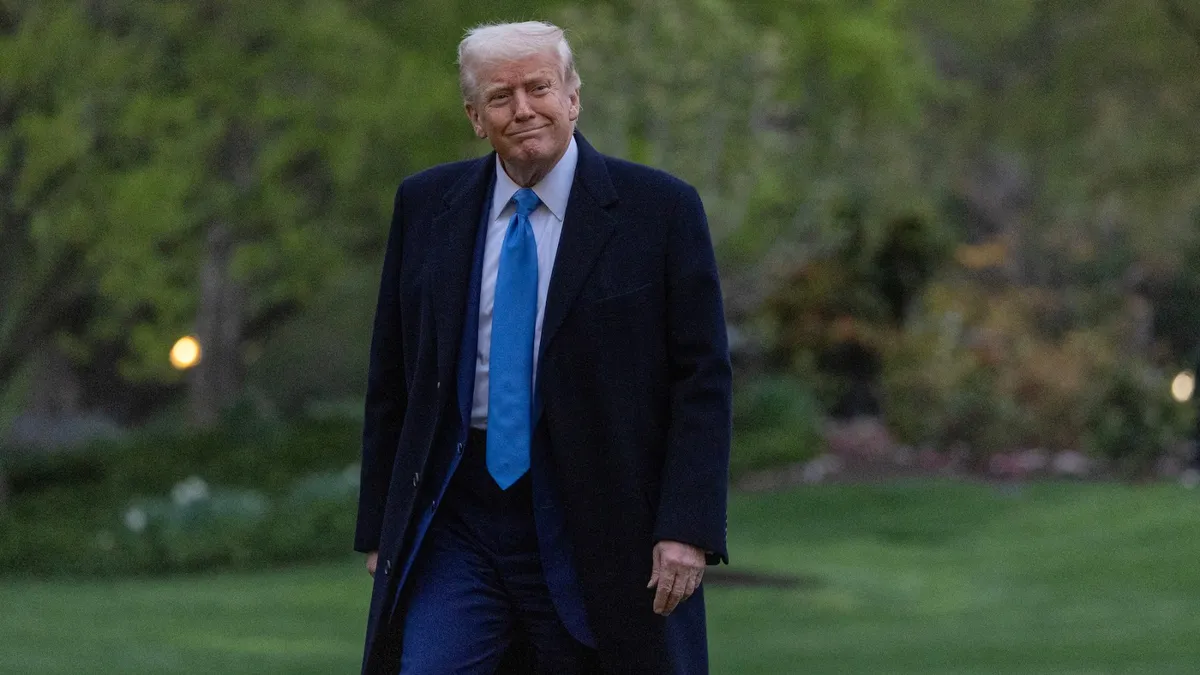
On Sunday, former President Donald Trump addressed concerns regarding the recent volatility in the stock market, emphasizing that he is not deliberately attempting to tank the economy. This statement came in the wake of his controversial tariff announcement last week, which had significant repercussions for U.S. markets. Speaking to reporters aboard Air Force One, Trump dismissed inquiries about the extent of market pain he is willing to tolerate as “so stupid.” He stated, “I don’t want anything to go down, but sometimes you have to take medicine to fix something.”
Despite the turmoil, Trump expressed an optimistic outlook, asserting that “eventually it’s going to straighten out, and our country will be solid and strong again.” This perspective marks a noticeable shift from his previous communications, including a post on Truth Social where he shared a video alleging that he was “Purposely CRASHING The Market.” Following his dramatic tariff announcement, U.S. stock futures experienced a sharp decline, raising fears of a potential “Black Monday.”
Trump’s tariff measures, announced last Wednesday, have triggered a significant downturn in the markets. The tariffs are notably steep, with rates as high as 49 percent on Cambodia, 48 percent on Laos, and 34 percent on China. The American Enterprise Institute criticized the administration’s approach, pointing out a mathematical error that resulted in proposed tariffs being much higher than intended. Notably, even penguins were not exempt from these tariffs, while Russia was spared.
On Sunday, Secretary of Agriculture Brooke Rollins responded to the AEI analysis, claiming it was “just wrong” despite admitting she had not read the report. Two officials within the Trump administration confided to Rolling Stone that, though they view the tariff strategy as risky, they are hesitant to confront the president about it. They believe that attempting to change his course could either be ineffective or lead him to double down on his policies.
As Trump continues to pursue his tariff policies, alarm is growing among some GOP mega-donors. One major donor voiced deep concern, stating, “I don’t know if I would be this worried about what will happen to the economy if Bernie Sanders were president. That’s how bad this is, and there’s very little time to fix the situation and turn the ship around.”
At this juncture, Trump appears resolute in his approach, seemingly prepared to navigate the economic challenges ahead. His willingness to embrace potential hardships for the American populace raises questions about the long-term implications of such economic policies. As the situation develops, many are left to ponder whether this strategy will yield the desired results or if it will lead to prolonged economic distress.